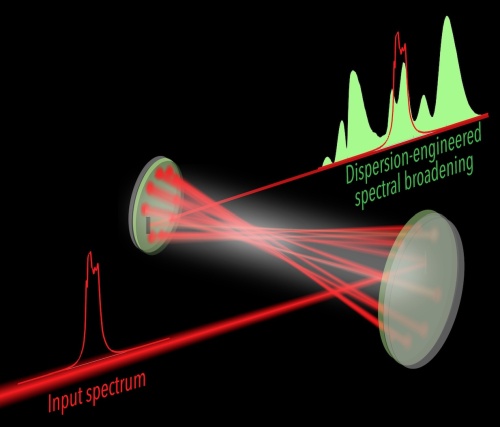Dispersion-engineered multi-pass cell for single-stage post-compression of an ytterbium laser
A post-compression method using a compact single-stage gas-based multi-pass cell (MPC) was developed in order to overcome spectral broadening limitations, allowing us to approach the few-cycle regime for Ytterbium laser technologies. This new paper has been published in Optics Letters.

Ytterbium-based laser systems are becoming of great importance in the field of ultrafast physics due to their high average power capability while operating at high repetition rates. To overcome their limitation in pulse duration, which is typically in the order of a few 100 fs, nonlinear spectral broadening techniques are employed.
Within a collaboration between the CFEL-ATTO group led by Francesca Calegari and scientists from the FS-LA Group under the supervision of Christoph M. Heyl, a post-compression method using a compact single-stage gas-based multi-pass cell (MPC) was developed in order to overcome spectral broadening limitations, allowing to approach the few-cycle regime for Ytterbium laser technologies. The MPC output delivering sub-20 fs pulses is based on the precise control of dispersion and nonlinearity via dispersion-engineered dielectric cavity mirrors. This allows to achieve self-phase modulated nonlinear spectral broadening ultimately providing a ten-fold compression factor and more than 90% throughput.
Reference:
Laura Silletti, Ammar bin Wahid, Esmerando Escoto, Prannay Balla, Supriya Rajhans, Katinka Horn, Lutz Winkelmann, Vincent Wanie, Andrea Trabattoni, Christoph M. Heyl and Francesca Calegari, “A dispersion-engineered multi-pass cell for single-stage post-compression of an ytterbium laser” Opt. Lett. 48(7), 1-4 (2023). DOI:10.1364/OL.476846